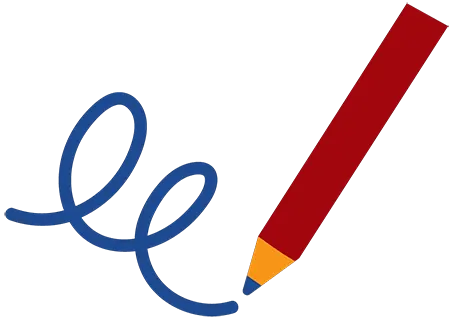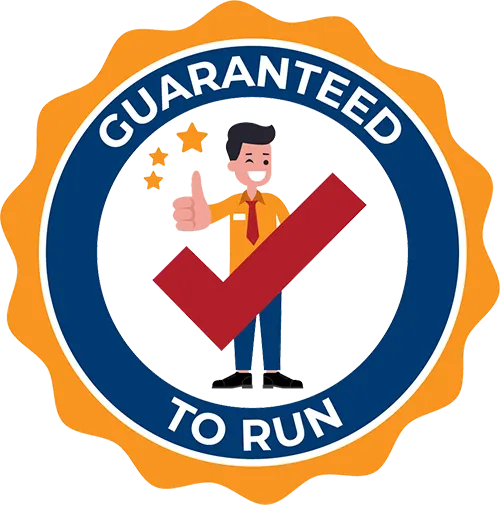
Business Writing That Works
What You'll Learn in Business Writing That Works
Course Length
Learning Objectives
- The value of good written communication
- The importance of writing and proofreading your work so it is clear, concise, complete, correct, and courteous
- The "how" of writing effective and efficient emails, incorporating a variety of strategies and knowledge
- The dos and don'ts of email writing
Target Student
Everybody in the workplace who needs to communicate with colleagues or clients will benefit from this course. If you want to write a more impressive résumé, or if you want to gain a significant edge for advancement purposes, then this course is for you. Good writing is an extremely valuable skill, and everybody in a business environment can benefit from the lessons covered in this course.
Course Outline
Good writing uses the right words to express our thoughts to someone else. It is a skill that can constantly be polished and refined. Good writing does not just happen by chance; it is something that is learned, practiced, and executed. Poor writing costs time, money, frustration, and possibly your reputation!
In business writing, the language is concise, the point of view is clear, and the points are well expressed. Good writing is work, and even the best writers get discouraged. However, with practice you can feel more confident about your own writing. This workshop will give participants the tools to become better writers and better communicators.
You will spend the first part of the day getting to know participants and discussing what will take place during the workshop. Students will also have an opportunity to identify their personal learning objectives.
Why Write?
Many people feel that writing is a burden or something they should be able to delegate. This session will help participants identify the value of writing. It will also include the top challenges organizations face with regards to the writing of their employees and participants will have an opportunity to discuss their personal writing challenges.
The First Four C's of Writing
Participants will discuss the first four C's of writing: clear, concise, complete, and correct. This session includes the why and the how of the individual components of good writing. Participants will practice each C through writing exercises to confirm understanding.
Word Agreement
During this session, participants will explore word agreement through a brief lecture and a writing exercise. This discussion includes pronouns, antecedents and modifiers and their role in good writing.
Active and Passive Voice
Most people prefer to read writing that is in the active voice. We will discuss and practice both voices during this session.
Sentences and Sentence Types
During this session, participants will explore word agreement through a brief lecture and a writing exercise. This discussion includes pronouns, antecedents and modifiers and their role in good writing.
Manners and Courtesy
The fifth C, courtesy, is an important principle of good business writing and will be discussed in this session.
Practical Language
It is important to use words that best reflect what you are trying to say. In this session, we will examine some common dilemmas, such as fewer versus less, that versus which, than versus then, and suggested solutions.
Sentence Construction
The two basic rules for constructing sentences are: use construction that makes the meaning clear, and keep the construction parallel. Participants will learn the concepts and practice the theory by rewriting sentences that do not follow these rules.
Punctuation
After discussing all the punctuation rules, participants will work in pairs to develop a series of test questions for other participants. There are some key points that can be used to debrief the test. Capitalization rules will also be included in this section.
Writing Effective Emails
This session will explain why there is a lot of miscommunication when using email as one's primary form of communication. Although email is convenient and fast, participants need to recognize tips, tricks, and strategies to ease the frustration of the reader and allow the writer to get their message across more efficiently.
When to Send an Email?
Participants will learn the dos and don'ts of when you should send an email and how planning is an important step in the evolution of an efficient, productive email.
Audience Needs
Being able to assess your reader's needs before drafting an email is a crucial step in sending an efficient and productive email. These strategies include how best to use the subject line, which acronyms to use to speed up inbox recognition, and how to avoid thread jacking.
Reader versus Writer Focused
Emails are either reader or writer focused. Which one allows you, the writer, the best bang for your buck? This session is followed up with practical exercises to confirm the learning of the theory.
Formatting
Participants discuss the pros and cons of various email formatting, including white space, lists, and parallel structure.
Trigger versus Positive Wording
This session deals with what triggers us as readers and how we can ensure that we default to positive wording when writing emails. Emotional responses to emails are also discussed in this section. Exercises are used to confirm understanding.
The Last Few Tips
Correct use of the "To" and "CC" fields, along with email signatures, salutations, and closings, are discussed to end out the topic of email writing. Final email rules and dos and don'ts are also included in this section.
Spelling and Proofreading
Nothing spoils good writing more than a careless spelling or proofing error. Being careless can spoil a writer's best efforts. This session will help participants identify strategies to use in an everyday setting.
Workshop Wrap-Up
At the end of the workshop, students will have an opportunity to ask questions and fill out an action plan.

Delivered by Great Canadian Training

Business Writing That Works
Upcoming Classes
All Public classes are held onlinewith a live instructor
| Dates | Price | Qty |
|---|---|---|
| February 21, 2025 9:00 AM to 4:00 PM ET | $595.00 Online | |
| June 24, 2025 9:00 AM to 4:00 PM ET | $595.00 Online | |
| November 6, 2025 9:00 AM to 4:00 PM ET | $595.00 Online |

Groups of 6 or more? Consider private training
I want a quote for private or customized training
Have questions about this course? See below or reach out to our training coordinators.
The Great Canadian Training & Consulting Company Advantage
When you train with us, your training will not just check a box. We make sure it is GREAT!
- Experienced Trainers
- Learn or Come Back Free Policy on Public Classes
- 24/7 After Training Support
All of our courses include
PDF Reference Guide
Want a summary of what you’ve learned? Save paper and use your PDF Reference Guide, accessible on any of your devices.
Certificate of Completion
Boost your credentials with a Certificate of Completion, confirming the skills you’ve acquired with us.
24/7 After-Training Support
Receive a 30-day after-training support voucher, offering assistance as you apply your new skills on the job. Need help with a specific step? We’re here to provide extra support and clarity even after you’ve left the class!
Want even more?
Check out our add-ons
Printed Reference Guide
While we love technology, we understand that there is something about having a paper copy. Add a printed reference guide to your training, which we will have shipped to your location.
Extended After-Training Support
Extend your support beyond the standard 30 days for ongoing assistance.
Can I customize my course?
OF COURSE!
Customized to meet your unique needs
We can customize your training to fit your exact needs, whether it's making small adjustments or creating entirely new courses. From setting specific objectives and including your own files to addressing unique challenges, we're here to help. We can even tailor the training to align more closely with how you work and to fit perfectly into your schedule. Our goal is to provide training that's as unique as your goals.
Access to your recorded session for 60 days
You can request your private session be recorded. You can have access for 60 days to revisit what you’ve learned.

